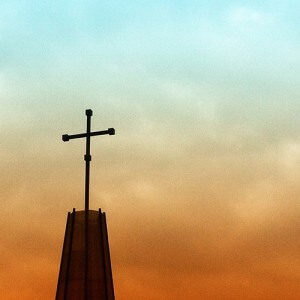Searching for a Sign, Small Congregation Sues
May 24th, 2016

A Supreme Court ruling ended in favor of a small nomadic church that had been cited for violating local signage ordinations.
In a case that garnered less national attention than other cases that made their way to the U.S. Supreme Court, a small congregation in a suburb of Flagstaff, Arizona received a “win” when the Supreme Court ruling ended in their favor in June of 2015. The decision, though local in origin, may have farther reaching consequences than many currently believe. It is a case involving yet another clash between church and state, and one that marked an important victory for those seeking to protect the promises of the Constitution that no government shall abridge a citizen’s right to practice a religion of their choice and freely assemble to do so.
The Facts
The case of Reed v. Town of Gilbert, Arizona involves a somewhat nomadic church congregation that meets in various locations each week to conduct their worship services. In order to alert his parishioners to the next location of service, the pastor would place temporary signs in public spaces that contained information such as the time and location. This led to the pastor receiving a citation from the Town of Gilbert for violating its ordinance with regard to the placement of temporary signage. Unable to come to an agreement with the town’s leaders, the pastor felt that he had no choice but to sue the town for violating the constitutional rights of him and his followers. The church argued that the town’s ordinance as it was being enforced placed an unconstitutional burden on its parishioners’ right to free speech. In support, the church pointed to various other forms of temporary signage that was placed around town, but was not subjected to citation by the town. Such examples included signs for political candidates and real estate agents, many of which were larger than the church’s temporary directional signs and placed in one location for longer periods of time.
Supreme Ruling
In its unanimous decision, the Court ruled in favor of the pastor and his congregation. In the opinion written by Justice Thomas, the Court found that the town’s law placed “more stringent restrictions on signs directing the public to the meeting of a non-profit group than on signs conveying other messages.” This was found to be an unconstitutional content-based regulation of speech, which is not allowed. Such restrictions by governmental entities have been found to violate the tenets of the Constitution for decades. Essentially, the Court’s previous cases have developed a test to determine whether government restrictions on speech violate the Constitution, as all forms of government regulation are not impermissible.
The test as it currently stands measures whether the government can show a “compelling interest” in regulating the speech, and that the restriction is “narrowly tailored” to further that interest. While the compelling interest test still largely requires a court to review issues on a case-by-case basis, it has been around long enough that government entities should be considering it before enforcing a law that may have a negative impact on citizens’ right to free speech. The mission of the Universal Life Church is to monitor potential restrictions on the practice of religion in the United States, even when those restrictions affect individuals outside of the church. By strengthening the Constitutional rights of all citizens, we can ensure that the tenets protecting religious freedom become stronger as well.



wonderful points altogether, you simply won a emblem new reader.
What might you recommend in regards to your publish that you made a few days in the past?
Any certain?